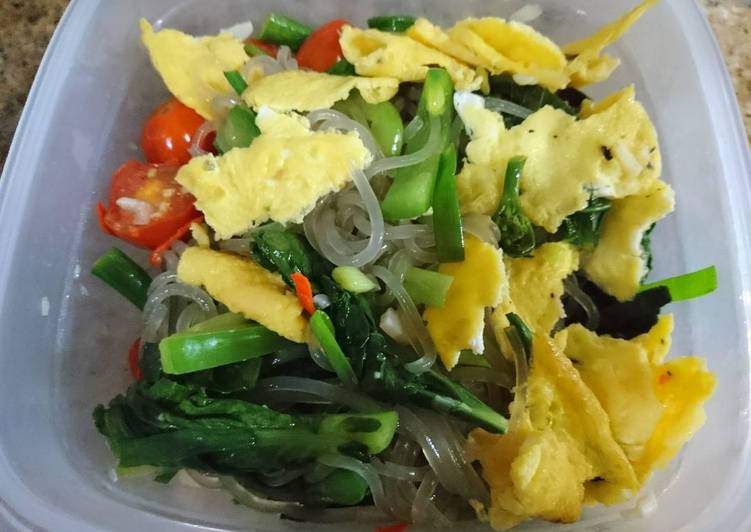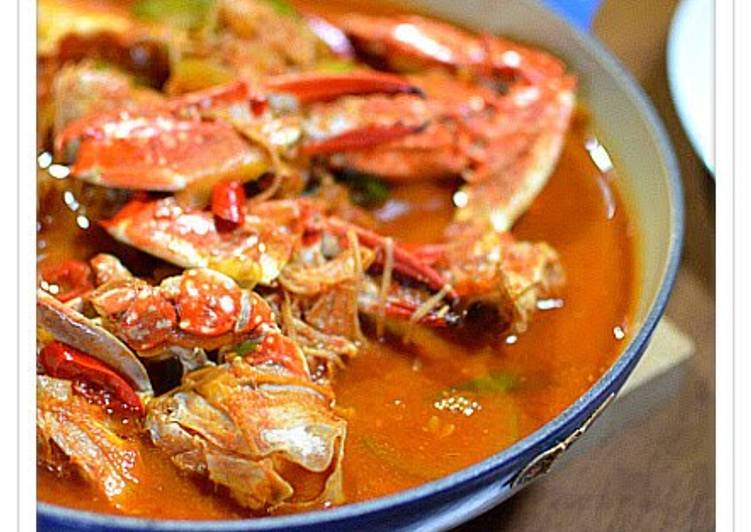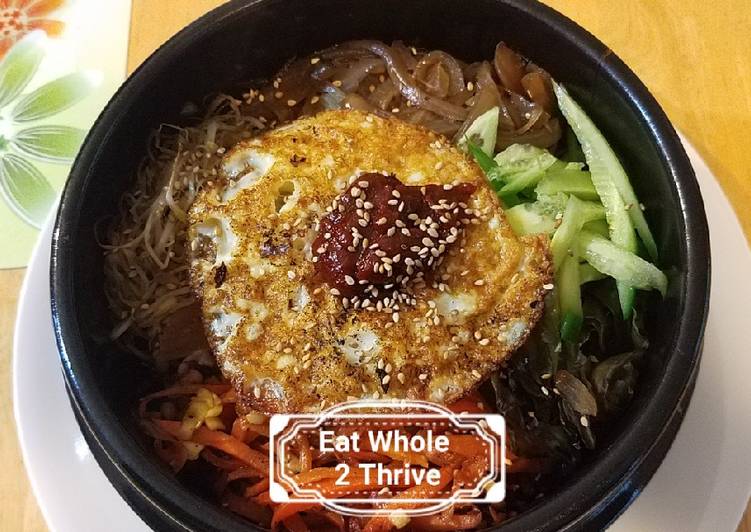
Hey everyone, it is John, welcome to my recipe site. Today, I’m gonna show you how to prepare a distinctive dish, korean japchae (sweet potato noodle). It is one of my favorites food recipes. For mine, I’m gonna make it a little bit tasty. This will be really delicious.
Made with bouncy sweet potato starch noodles, dangmyeon, japchae (or chapchae) is a classic Korean dish everyone loves! Japchae (잡채) literally means "mixed vegetables." But the main ingredient of this classic dish is Korean sweet potato starch noodles (dangmyeon), also known as. They are made using only sweet potato starch and water.
Korean japchae (sweet potato noodle) is one of the most favored of current trending meals on earth. It is enjoyed by millions every day. It’s simple, it’s fast, it tastes yummy. They are fine and they look wonderful. Korean japchae (sweet potato noodle) is something that I’ve loved my entire life.
To begin with this recipe, we must first prepare a few ingredients. You can have korean japchae (sweet potato noodle) using 12 ingredients and 10 steps. Here is how you can achieve that.
The ingredients needed to make Korean japchae (sweet potato noodle):
- Prepare Sweet potato noodles
- Prepare Garlic
- Prepare Chilli padi
- Take Cherry tomato
- Get Baby kailan
- Make ready Bell pepper (capsicum, any colour you want)
- Take 1 pcs Egg
- Make ready Spring onions
- Prepare Sesame oil
- Prepare Light soy sauce
- Take Mushroom powder
- Make ready Sugar
This classic Korean noodle dish combines translucent sweet potato noodles with lots of stir-fried vegetables and a sweet-savory sauce. What to buy: Korean sweet potato noodles, also known as starch noodles or Korean vermicelli, are made from sweet potato starch and water. Japchae (잡채; 雜菜) is a sweet and savory dish of stir-fried glass noodles and vegetables that is popular in Korean cuisine. Japchae is typically prepared with dangmyeon (당면, 唐麵), a type of cellophane noodles made from sweet potato starch.
Instructions to make Korean japchae (sweet potato noodle):
- Cut the baby kailan, separate the stem and the leaves part.
- Cut cherry tomato to half. Cut bell peppers to thin cuts.
- Cut spring onions to 2cm size. Crushed and diced the garlic. Cut chilli padi.
- Heat up sesame oil. Put in garlic, baby kailan stem and stir fry until the leaves start to change color.
- Put in bell peppers, tomato. Stir fry. Put in mushrooms powder, cut chilli padi and sugar.
- Put in the rest of baby kailan leaves. If you like your spring onions crunchy, turn off the fire and add in spring onions. Mix it a bit and set aside. If you like your spring onions cooked just leave them with the fire on for a while.
- Boil japchae for 8 minutes or you can soak it with hot water for an hour. After soaking it just stir fry it a bit and it will become transparent. After boiling it you can strain the noodles and put in ice water if you want more chewy texture.
- Mix japchae with sesame oil and light soy sauce.
- Beat the egg and put mushroom powder in. Make a thin layer of egg on the pan. You can cut them into thin strips or just shredded them randomly with chopsticks like I did.
- Mix japchae, stir fried vegetables and egg together. They are ready!
If adding broccolini, hot water blanch them for a few minutes. Japchae is a Korean noodle dish that includes tender beef, carrots, spinach, onions, and egg. There are variations, of course, some being without meat, but the core If you've never had Korean sweet potato noodles before, these are not made from fresh sweet potatoes that have been put through a. The sweet potato noodles are tossed with beef and veggies in a sweet savory sauce. Make japchae at home if you want a comforting, delicious, and nutritionally balanced meal for your weekday dinner.
So that is going to wrap it up for this exceptional food korean japchae (sweet potato noodle) recipe. Thank you very much for reading. I am confident you will make this at home. There is gonna be more interesting food at home recipes coming up. Remember to bookmark this page in your browser, and share it to your family, friends and colleague. Thanks again for reading. Go on get cooking!


